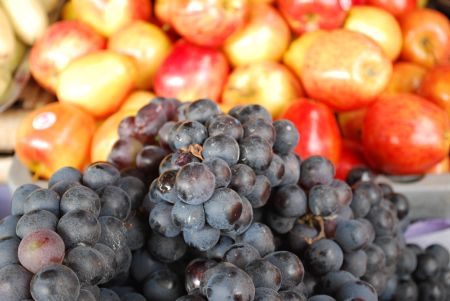Many of us would like to buy organic food more often, but feel constrained by what we’re certain will be sticker shock once we get to the store. However, a sharp eye and precise purchasing plan can help you buy organic food as often as you deem appropriate. These are my top seven strategies to buy organic food while still staying on-budget.
Buy organic food in bulk.
If you use a fair amount of organic grocery items, then buying them in bulk may in fact be the best budget solution. Consider warehouse stores such as Costco, or finding a group of organic growers with produce products to sell. (Tip: Check out this article on how to spend less on produce.) Not all organic food expires quickly. Shelf-stable rice, soy and almond milks are available by the case, as are multi-packs of strawberry fruit spread, peanut butter and more. So if your only bulk-buying option includes a long-distance drive, buddy up with a friend and make a day of it. Stock up for a few months to make it worth your time and effort. Your wallet will thank you.
Multi-purpose pasta sauce.
Several brands of organic, tomato-based pasta sauce are affordable. Pizza and sandwich sauces? Not so much. That’s why I purchase affordable brands of basic marinara and use it for everything from quick pasta dinners when I don’t want to make sauce from scratch, to pizza sauce or a sandwich ingredient when I’m making eggplant parmesan submarine sandwiches. For a convenience item, this stuff really goes the distance budget wise. You could also make a jar of your own with organic tomato puree and Italian seasoning. Either way, you’ve got a major time saver on your hands that’s also super affordable.
Hit the back yard.

Hey, organic is all about food growing in its natural state, right? So try making some homemade crabapple sauce from that tree at the edge of the field, or picking some organic blueberries in the wild. Other ideas include strawberries for jam, edible greens or making your own maple syrup. These are all great ideas that will help you on your quest to have more organic food on the table, and require much less effort than a full garden. If you don’t mind a few grow-your-own efforts however, try planting some rhubarb or growing a few herbs by a window.
Trim the fat.
Be honest. How many times have you pinched pennies on something healthy like organic carrots or some fresh cabbage, only to splurge on snack foods like corn chips or seasoned wheat crackers? Eliminating even a few of these processed, packaged items per month can carve out money for a number of organic food purchases such as fresh spinach, apples or even wine. Use these general tips for grocery shopping on a budget to guide you as you buy organic food as well.
Stock the pantry.
When it comes to frugal meal planning, purchasing basic food staples is just as powerful for the organic grocery shopper as it is for those buying conventional food items. Stock your pantry with organic flours, shortening and other supplies to create your own homemade baking mixes for biscuits, cornbread, artisan breads and brownies. Purchase bulk dried beans and lentils to store instead of canned or frozen. They’ll take up less space, and save money as well.
Generics.
Store brands have always been a great option for those looking to pinch a penny. That hasn’t changed just because you’re looking to buy organic food. Search your favorite grocery chains for generic versions of your most commonly purchased organic food items. Examples include cereals, grains, pastas and condiments. Consider storing items that don’t need to be refrigerated in your pantry as well. You’ll be super stocked when the next storm rolls around.
Be a cheapskate.
What I’m talking about here is to focus on those organic food items that offer an exceptional price value. Lentils, cabbage, carrots and vinegar come to mind, but there are many others as well. Search out those items that even a conventional grocery cheapskate would consider a great deal, and find ways to use them in your meal planning. Frequently.
Being healthy doesn’t have to cost a hefty amount. Use these strategies to stay on track financially as you begin to search out and buy organic food.
A lifelong money cruncher who can squeeze a nickel ‘til it cries, Myscha is a syndicated columnist, best-selling author, and founder of Trek Hound and We Be Sharin’.
